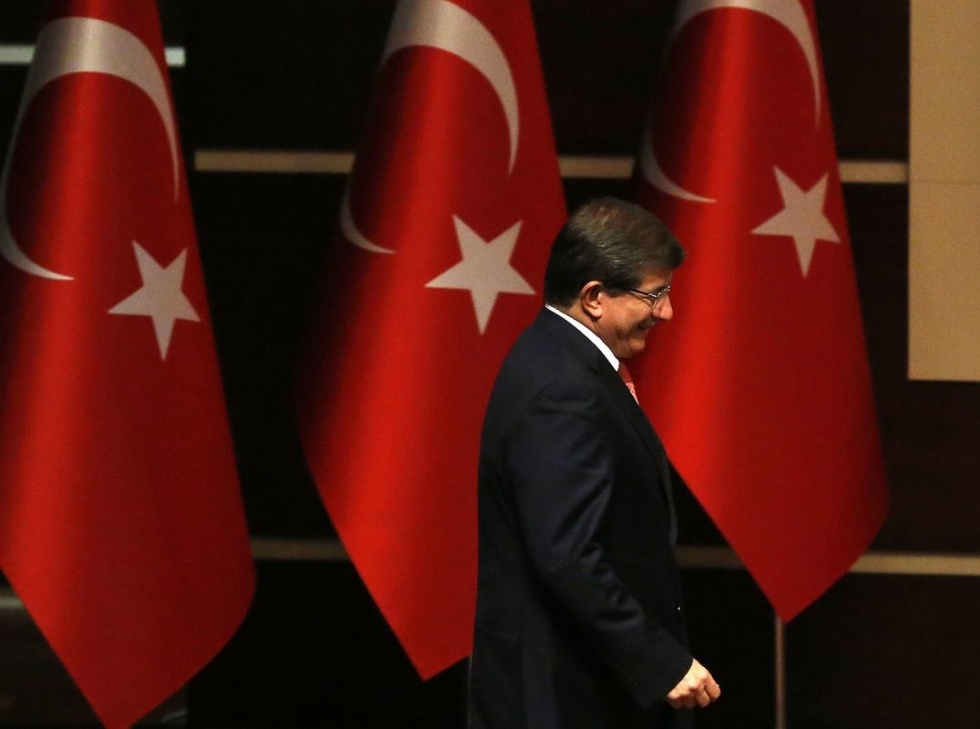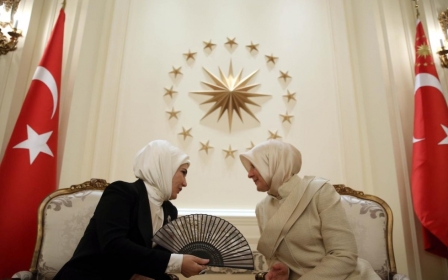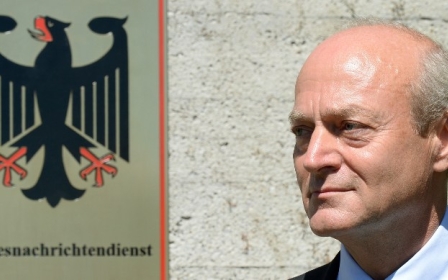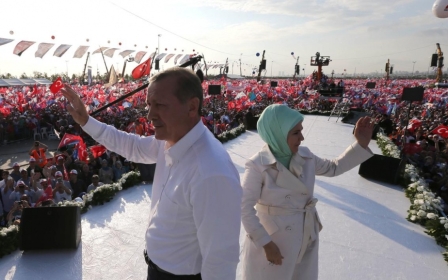Davutoglu: architect of Turkish foreign policy to be new PM

Turkey's ruling party on Thursday chose Foreign Minister Ahmet Davutoglu to be its new leader and prime minister, to replace Recep Tayyip Erdogan when he takes the presidency next week.
Erdogan -- who has dominated Turkey's political scene for 11 years as prime minister -- announced the decision after an executive committee meeting of his Justice and Development Party (AKP) to decide on his successor.
The press has been abuzz for days with reports that Davutoglu was favoured for promotion to become prime minister under Erdogan's presidency, which begins on August 28.
Davutoglu's nomination will be rubber-stamped by an extraordinary congress of the AKP on August 27 and he will take office a day later.
"The AKP's candidate for the party leadership on August 27 is foreign minister and member of parliament for Konya, Ahmet Davutoglu," Erdogan said to cheers from the party.
"I believe our candidate for party leadership and prime minister will realise the ideal of a new Turkey and the AKP's targets for 2023" when modern Turkey celebrates its 100th anniversary, Erdogan said.
He enjoyed an elite education and is fluent in several languages but emerged as the chief architect and ideologue of Turkey's assertive foreign policy under Erdogan.
He will be the third prime minister since the AKP came to power in 2002 after outgoing president Abdullah Gul and Erdogan, who has been premier since 2003.
Regional power broker
Davutoglu's mild-mannered and smiling demeanour belies his abilities as a tough negotiator and strategic thinker, who has been at the heart of government since Erdogan first came to power.
His foreign policy defined Ankara as a regional power broker.
After an academic career as a professor of international relations, Davutoglu became one of Erdogan's top advisors in 2003, the year Erdogan took the post of prime minister.
He was promoted to foreign minister in 2009 and since then has overseen Turkish policy on the string of crises which exploded since the Arab Spring, including the Syria conflict.
Davutoglu has sought a pivotal role for the country as a mediator in conflicts in the Middle East.
This new policy was not always welcomed and sparked accusations by critics that the Islamic-rooted government is promoting "pan-Islamism" in seeking to restore Turkish influence throughout the former Ottoman Empire.
He was listed in Foreign Policy magazine as one of the "Top 100 Global Thinkers of 2010" for repositioning Turkey as a "central" country and dismissing post-Cold War cliches of a bridge country between East and West.
He has rejected accusations that the country -- a NATO member and a candidate for European Union membership -- is shifting away from the West, arguing instead for an integrated foreign policy.
"Turkey cannot prioritise its relations with the East or the West," he once said.
Davutoglu has advocated a policy of "zero problems" with neighbouring countries and embarked on fence-mending efforts with Armenia, with whom Turkey has no diplomatic ties.
But the Arab Spring shattered this policy, leaving Turkey with a myriad of problems with neighbours.
No ambassadors in Egypt, Israel and Syria
Relations with Egypt strained following Ankara's support for ousted democratically elected president Mohamed Morsi and disputes with Israel reached new heights in the wake of the Gaza assaults.
Turkey now has no ambassadors in three key regional states -- Egypt, Israel and Syria.
Relations with the United States have cooled and momentum towards eventual EU membership has been lost.
A fluent speaker of English, German and Arabic, Davutoglu was born in Konya, one of Turkey's religiously most conservative provinces and a bedrock of support for the ruling AKP.
Davutoglu, married with four children, dedicates time to his family outside of work although he is also known to share Erdogan's passion for football.
"We like very much driving by car. Ahmet Bey drives himself. We sing songs with the children," his wife Sare, a doctor, said in a 2011 interview.
"I can say the only thing he likes doing at home is to open boxes of books and arrange them," she added.
He has also published influential books on international politics. His own vision for Turkey is summarised in his book "Strategic Depth", seen as the key theoretical work on current Turkish foreign policy.
New MEE newsletter: Jerusalem Dispatch
Sign up to get the latest insights and analysis on Israel-Palestine, alongside Turkey Unpacked and other MEE newsletters
Middle East Eye delivers independent and unrivalled coverage and analysis of the Middle East, North Africa and beyond. To learn more about republishing this content and the associated fees, please fill out this form. More about MEE can be found here.




